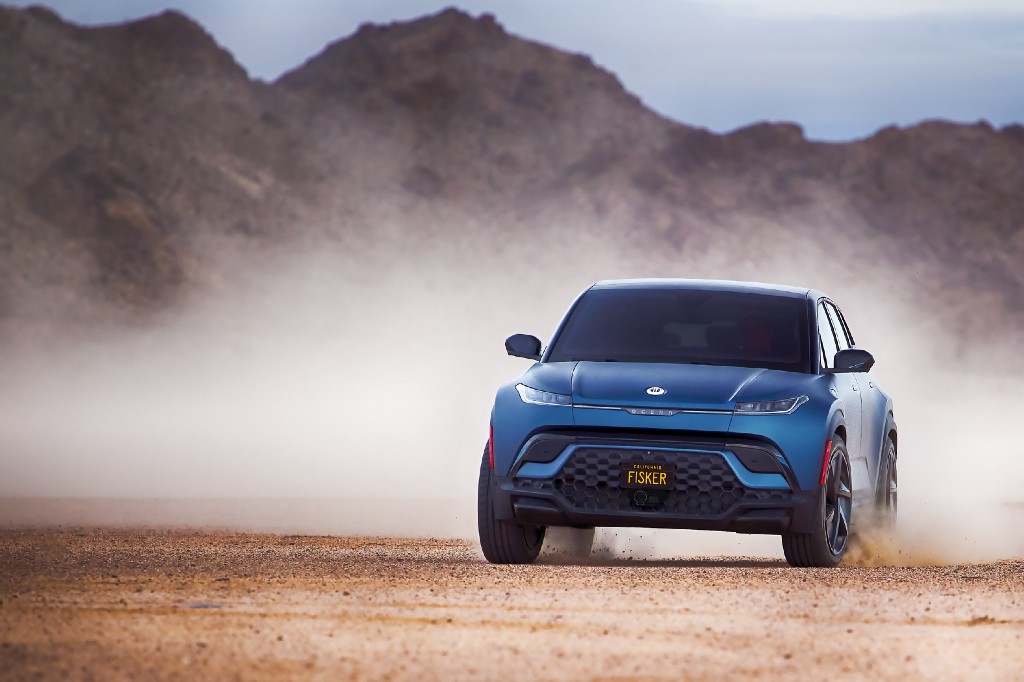Electric vehicle startups are attempting to make a name for themselves at an opportune time as the industry transitions to electric: will it be enough to emulate Tesla’s success?
Unfortunately, electric vehicles startups have more working against them than they do for then. Then again, Tesla beat the odds to accomplish the impossible.
Competition is significantly more fierce and varied now than it’s ever been, as conventional automakers are bringing their A-game to electric vehicle development.
Every automaker has recognized that now is the most prime time of all to create new classes of vehicles, and the best versions of their most beloved models.
Electric will create perhaps the ultimate versions of many vehicles, from sport performance cars to heavy-duty trucks.
New players to the field, particularly Lucid and Rivian, have recognized this and are creating vehicles that are attractive but that will have an uphill battle convincing consumers that they’re the right choice for them.
Their largest obstacle right now according to Elon Musk: high pricing.
Tesla worked off of a Mission Plan to create gradually more affordable vehicles as they were able to do so. Essentially, the goal of Model S was for the automaker to stay afloat long enough to produce Model 3. These automakers have similar ambitions for volume, which will be necessary to their overall success, but are still in the earliest phases.
The issue now is that the market is beginning to transition out of its pioneering stage, opening the door for a wider stage of more affordable and more impressive vehicles.
New automakers today have to offer at least one or the other: undeniable affordability or distinct innovation. Any less makes them doomed from the start.
Rivian’s largest issue is that the automaker has continuously had to raise prices, which is a result of the market being perhaps the most unsustainable for a new automaker that it’s ever been in the modern era. Inflation coupled with rising supply costs and constraints are to blame, and no automaker has been truly immune — Tesla has raised its own pricing too many times to count.
Rising costs become more prominent of an issue on vehicles that have unfulfilled reservations, as raising prices when deposit holders are expecting certain pricing and specifications will only cause ill will among consumers for a new automaker. Tesla already has developed a rare brand loyalty and enthusiasm that may take some of the pressure off of changing Cybertruck pricing.
Rivian’s vehicles do have a surprisingly mature feel and appealing aesthetic, but competition like Ford’s F-150 Lightning keeps the brand firmly in electric vehicle enthusiast territory. In fact, we believe there’s not yet been enough marketing for Lucid or Rivian to be known to the vast majority of consumers. Word-of-mouth may not spread quickly enough as it did with Tesla over the past decade, which has had to spend a grand total of zero dollars on conventional advertising.
New automakers are at an impasse where they want to follow Tesla’s marketing model, but it may not be sufficient enough to sustain growth. Thus the idea of a showroom in busy shopping centers where customers can sit in and experience vehicles is being more strongly considered, which is followed up by an order through a web-site.
The story today isn’t ideal, as Rivian has built 7,000 vehicles through the first six months of 2022. A goal for the year has been reduced to 25,000 from a 50,000 target, and it may not be met. Effectively, Rivian is expected to post a loss of at least $5.5 billion for the fiscal year.
Nonetheless, the main benefit that new automakers face which may be influenced by Tesla’s success: generous funding from investors.
Rivian has a combined $15.5 billion of cash and cash equivalents on hand, which should allow the automaker to survive another three years provided growth remains stagnant. We would expect a drastic ramp, but may not realize it over the same period. Any magnitude of growth could serve to bring Rivian, or Lucid which is similarly relying on cash reserves in an expected growth phase, to profitability.
It’s certainly helped Fisker, a once-defunct automotive brand heralded by an automotive design icon, return from the ocean of failed automakers to produce the Fisker Ocean. The Ocean is an innovative, attractive, and affordable electric SUV that checks all of the boxes that could produce a sustainable new electric vehicle.
That’s not to say current start-ups haven’t also created compelling vehicles. We have examples like the Lucid Air Sapphire, which is an alternative to Model S Plaid that costs nearly twice as much while providing the premise and perhaps successful execution of enhanced luxury.
Automotive start-ups at this stage will have to carve out their own niche, as Tesla has already demonstrated the potential of electric vehicles to the point that it’s become an iPhone moment where consumers want to upgrade to electric. It’s going to be inherently difficult for startups without significant strides in differentiating design, price, and features that demonstrate a better or more attractive alternative to an evolving market.
__________________
Interested in Listing or Upgrading YOUR Tesla? The BEST place to get TOP dollar for your used Tesla. MADE IN NYC
Tesla currently has extremely limited new inventory available for immediate purchase, and used vehicles across the automotive industry are selling for an average of $5,000 over market value.
Browse the listings now: Only Used Tesla
Buy or list your premium electric vehicle: OnlyEV
Or feel free to contact us directly at contact@onlyusedtesla.com today!

Comments